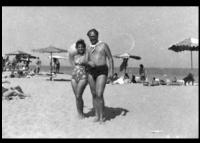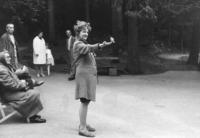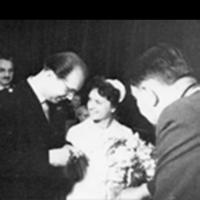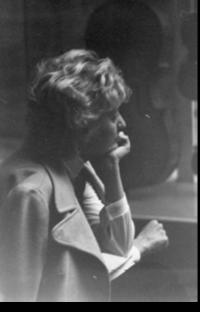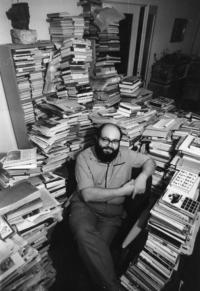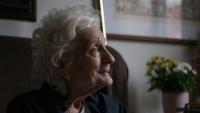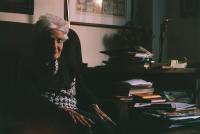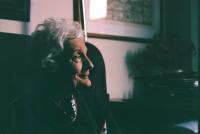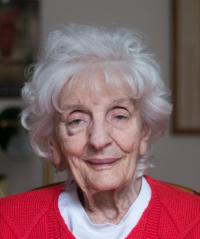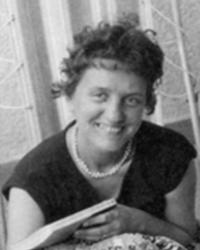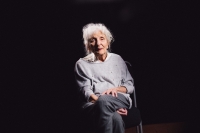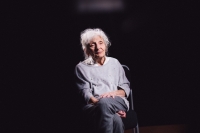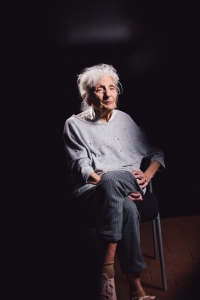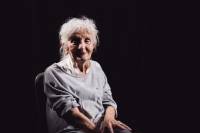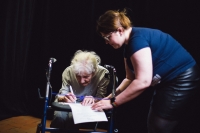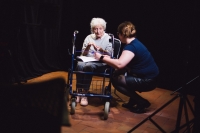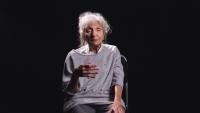“Did you feel as a child a fear, at that time?
Yes, well, yes. They must have been like that, especially when we saw ... Štefániková street was very important at this time, such an artery. They went from that ... from the station... they went to the city here ... they went to all those processions, I know. So, when the Germans came to Bratislava, for example, they marched there, I remember that.
And then, when your father joined the Slovak National Uprising, you knew that he was actually part of the Slovak National Uprising when you moved to Zvolenská Slatina.
Yes, we knew ... yes we went to the middle part of Slovakia, but with everything possible ... We just moved there. The headquarters, too, those people ... that headquarters was such a whole group there ... but you know, I don't know the details, I don't know. But I know, but for us it was a beautiful experience that year, because we were in the village. It was very nice there, but it was all in the hands of the parents then. That's the dramatic journey from there, I remember. Because it was like ... it was really scary. Because the death portended to us, actually the whole family, especially to father, but…
And so do you remember how long the journey from… actually back to Bratislava from that Zvolenská Slatina took at this time…
Well, basically day and night. It wasn't like today...just because we went by that toy car. We've gone in between ... Those partisans have taken us. We went up into the mountains, when the uprising was really creeping up, so we went up the Hrochotská valley with them, and I still remember that. That was also so threatening, really. Only they, themselves ... those partisans said to our father, "you better go back to the village, it doesn't look good anymore, here we go…" they basically go to those bunkers and so on. So then we came back, only there it rolled over, that is who we are. Because at that time there were just Germans ... somehow, but I do not know, I do not know where they were actually accommodated, because so…
And when you returned to Bratislava to the original apartment?
To Trnava to my grandmother ... to Trnava. We didn't go to Bratislava to ... so that ...In fact, in a way, we hid there. They knew in Bratislava, in fact they knew that we were from Bratislava, but it was already a really big disorganization, the end of the war was approaching. They were actually... they were not Russians, they were Romanians or something like this. There was quite a lot of chaus between the soldiers and the army that was coming, so they also had a lot of chaus in it, you could work there in anyway. Well, the first thing they did to Zeta, the poor little car, was taken from our yard, and I don't know if ten or fifteen of them came in, and we just found a car wreck around the corner. ”

